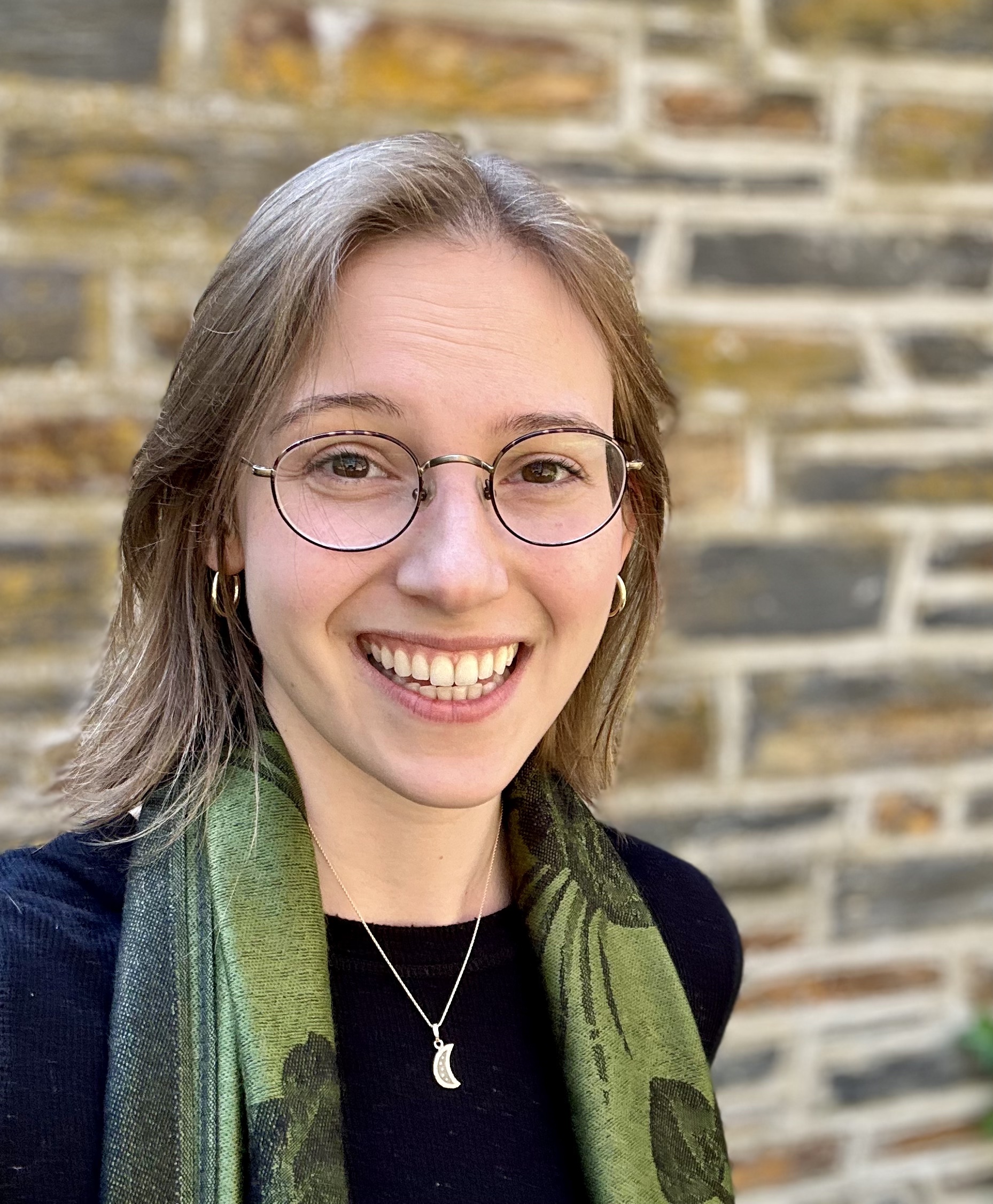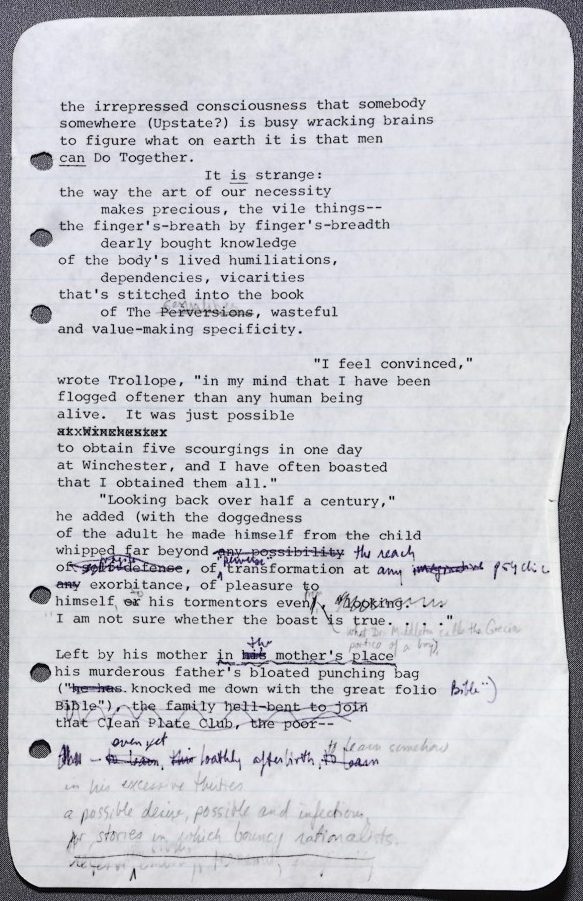Katie Carithers was an Archival Expeditions fellow in Spring 2023. Archival Expeditions introduces Duke graduate students to teaching with digital and physical primary sources. Each student partners with a Duke faculty sponsor to design an undergraduate course module that incorporates primary source material from the Rubenstein Library’s collections tailored to a specific class taught by that faculty member.
Katie’s excellent course module, as well as previous modules created through the program and program information, can be found on the Archival Expeditions website.
Archival Expeditions is generously funded by the Vice Provost for Interdisciplinary Studies, Ed Balleisen.
Tell us a bit about yourself.

I am a third-year doctoral student in the English Department here at Duke, and I am also pursuing a Certificate in Gender, Sexuality, and Feminist Studies. My research interests are located at the intersection between Victorian Studies and contemporary postcolonial, feminist, and queer theory. Currently, I am thinking about how nineteenth-century novels figure consenting, desiring, and gendered subjects and how those notions transform across the nineteenth century.
I applied to the Archival Expeditions out of an excitement to work with the Eve Kosofsky Sedgwick Papers. In April 2022, Rubenstein announced that the collection was now open to researchers, and this fellowship seemed like a wonderful opportunity to engage such an expansive and heterogenous collection in a way that would allow the archive to shape the project. I think that my faculty sponsor, Gabriel Rosenberg (History and Gender, Sexuality, and Feminist Studies), was similarly excited by the possibility of exploring this archive, not knowing what would be in the collection, and letting the collection inform where we would go with the module.
What is the focus of the course module you created and what did you learn from the experience of designing it?
The module was designed for an “Intro to LGBTQ Studies” course. Since Eve Kosofsky Sedgwick is often considered one of the founding thinkers of queer theory and LGBTQ studies as a discipline, this collection opened numerous pathways to think about central concepts as well as field formation (and transformation) over time.
Ultimately, the module revolves around one of Sedgwick’s seminal monographs, Epistemology of the Closet, which students will study in the class. Over the course of the module, students will encounter a range of archival artifacts—from teaching material and grant proposals to letters and marginalia—that span the creation and reception of Epistemology.
In addition to being able to spend time exploring the collection, one of my favorite aspects of the fellowship was its emphasis on pedagogy. Given the constraints of a module, I could focus on the reasoning behind each part of the lesson plan and modify as the semester progressed. As a fellow, I had the opportunity to shadow archival visits, workshop the conceptual plan for in-class activities and assessments, and receive feedback on the lesson plan and worksheets. The structured opportunity for that kind of attention to pedagogy was immensely valuable.
Meetings with my faculty sponsor as well as with Brooke Guthrie (Rubenstein Research Services,) Seth Anderson (Duke Learning Innovation), and Laura Micham (Director of the Sallie Bingham Center for Women’s History and Culture) were especially instrumental.
Also, since archival visits are usually already different from a regular class session, the module encouraged experimenting with activities and projects in its design, which was fun to think about!
What do you hope undergraduate students will gain from the experience of working with archival sources like the Eve Kosofsky Sedgwick papers?
The overall goal of the module is for students to use these archival materials to situate Sedgwick as a thinker within a cultural history. Through the selected archival materials, students will encounter Epistemology as thinking and writing that is in progress and in dialogue with other scholars and writers. And not just academic writing! There are zines, newspaper clippings, comics, and other written/visual artifacts. The aim is that, by close reading these materials, students will analyze how the taking up of sexuality as an analytic framework is tied to authorial and historical politics — and how that this is true for Sedgwick as well as scholars of LGBTQ studies today. I think that can help students reflect on the kind of questions they want to animate their own work and how they perceive their own writing in relation to their current moment.
Hopefully these archival artifacts will also showcase disciplinary formation as students encounter LGBTQ studies as something that is in the process of being thought of as a discipline, which may help highlight how that disciplinary formation is continuous and ongoing even now.
What did you enjoy about working with the Eve Kosofsky Sedgwick papers and what were some of your most interesting finds?
There’s such a range of the kinds of materials. Everything from written materials like drafts, letters, notes, and syllabi to textiles, collages, photographs, and other artwork. The collection continually surprised me! There were days when I would have no idea what the inside of a particular box would look like until I was unwrapping its contents.
For my research, I primarily focused on the first twenty or so boxes in the collection, which include teaching materials, research, and professional correspondences as well as artifacts pertaining to specific monographs. What struck me when reading through these different documents is the presence of Sedgwick as an artist and poet as well as scholar and teacher. That inseparability is apparent in Sedgwick’s published work, and it’s really interesting to see how the archive also cultivates that sentiment.
One of my favorite finds was a notebook that comprises a typescript for “The Warm Decembers.” Stanzas are repeated and reworked and rewritten. I personally loved coming across drafts, writing in-progress, or different iterations of a piece. For example, there are notes on Proust and different sets of binaries that then are described in a grant proposal for Epistemology of the Closet and later in the book’s introduction.

Would you recommend the Archival Expeditions program and, if so, what advice would you offer to future fellows?
Absolutely! I think Archival Expeditions offers a unique opportunity to develop archival research skills and pedagogy. It’s also a great way to become much more familiar with the collections at Rubenstein. I learned about collections that I hope to work with in the future for my own research.
My advice for future fellows would be to let the archive alter and shape what you are going to do! It’s necessary to come in with a plan, but there are so many resources and parts of collections that you may discover during research that can lead to exciting new places.


